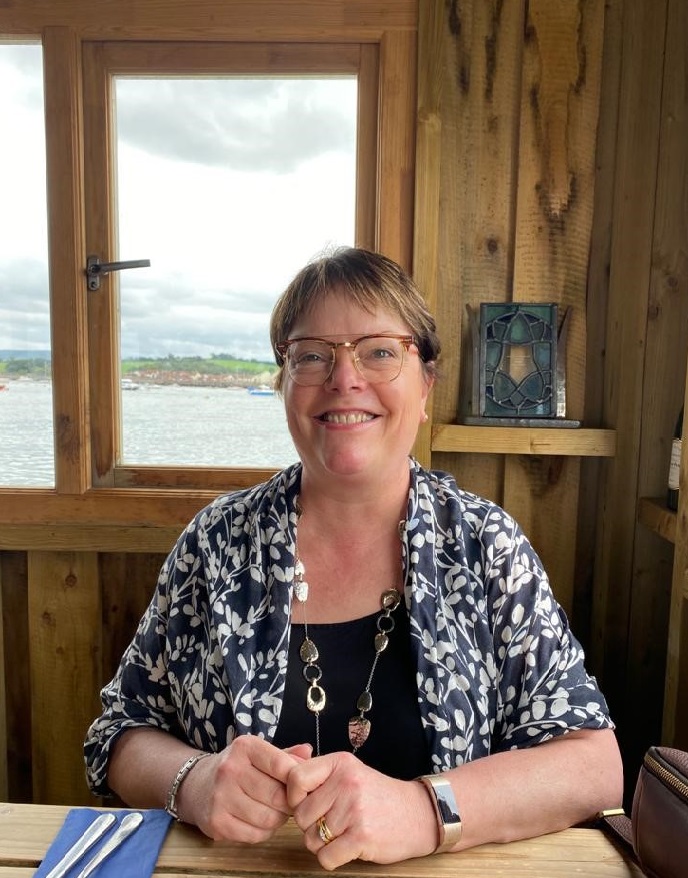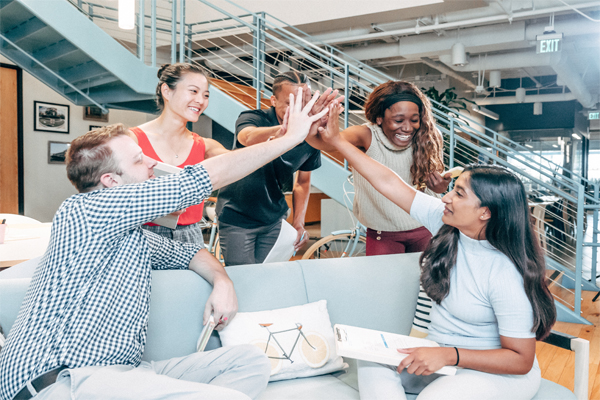The Clear Company’s Director Kate Headley speaks to Ngozi Weller, Director of mental wellbeing consultancy, Aurora Wellness, about the strategies employers can put in place to support their people and create healthier workplaces.
Taking a holistic 360 approach to mental health and wellbeing has become essential in the workplace, as mental health conditions continue to increase globally with significant impact, both economically and personally. Ngozi Weller, a mental wellbeing and productivity coach, helps progressive companies to strengthen their employees’ mental resilience and improve workplace productivity. She believes that good mental health and wellbeing is as fundamental to life as good physical health; and that everyone has the right to a fulfilling career, personal life and purpose.
Having worked for over 15 years in the world of big oil, Weller has experienced first-hand how challenging the corporate world can be; especially for those who have families to support. She established Aurora Wellness in 2017, with her psychologist cousin, Obehi, to empower others to lead fulfilling lives. Her company’s main aim is to enable good mental health and wellbeing for everyone in the workplace. In fact, she founded the company following her own battle with depression, anxiety and burnout. As a result of her experience, Weller has been able to guide organisations on how to support employee mental health and wellbeing since Covid-19.
WORKPLACE CULTURE
The pandemic marked a significant change in working habits and mental health at work has become a real focus. However, many organisations are unsure how to effectively support employee mental health and wellbeing. Weller believes that we are now entering a new phase where we recognise the importance of having a balance in focus on physical and mental health; and to remember that a person is a whole being. “Pre-Covid, we often saw that perceptions of corporate success were aligned to an overwork culture; with the expectation that working weekends and evenings was acceptable,” explained Weller. “To change something that’s been embedded in our workplace cultures for so long requires a societal shift; and this is what Covid provided. It started the debate about what really matters and how we can be effective without being exhausted.”
Throughout the pandemic, leaders have shown a greater willingness to share their own personal stories; and the move to a more empathetic leadership style presents a great opportunity to change underlying workplace cultures. However, there is still a disconnect between recognising this and tackling the root causes that contribute to poor mental health that we as employers could better control. So how do we create an environment where it feels safe to have these conversations?

CREATING AN ENVIRONMENT OF TRUST
Weller recommends creating a trusting environment using the Aurora 360 holistic strategy, which aims to gear the whole of an organisation towards the success of the individuals who work there. This consists of four stages:
Discovery
It’s essential to ask questions and record and act on the information given:
- How aware are people of the resources available?
- Do they know how to access them?
- Do they use them?
- Are line managers confident to trickle corporate wellbeing policy to their team?
Awareness
Create awareness of what good mental health looks like. How is it aligned to what’s important to the individual? This is where awareness days and wellbeing programmes have impact; and provide the opportunity to train everyone to recognise signs of stress and mental ill health so they recognise when and how to help.
Empowerment
Empowerment is an essential step in making sure everyone is on board and confident, particularly managers and team leaders as they have the most regular contact with individuals. When managers are trained in how to support wellbeing as part of their role and provided with the correct tools, they can confidently have appropriate conversations with their team; know when additional help is needed; and where to find it.
Governance
The final element is to ensure that every employee has the same experience. In order to keep wellbeing at work a priority, it needs the same focus as any other business critical process. Create, review and update policies, resources and training.
INCLUSION MATTERS
In short, a holistic approach adds great value to inclusion strategies, such as mental health and wellbeing. Although many businesses have made changes during the last 18 months, the take up often isn’t particularly high despite the need for it. Consequently, employers see very little difference.
While it is important to be transparent and invest in people, systems and communication, it’s also necessary and valuable to take the time to ask questions and understand the challenges that individuals are facing in order to provide an approach that truly tackles the root issues. Taking the time to request regular feedback and review what’s working and what isn’t, also keeps the approach relevant and successful.
Listen to Kate Headley’s full interview with Ngozi Weller in the latest Let’s be Clear Podcast series, here below.
ABOUT THE AUTHOR
Positive, disruptive and unafraid to ask the difficult questions, Kate Headley has created impact and change through her ability to reach senior decision makers and influencers in both government and businesses. As a highly experienced and fully qualified HR professional,Headley has been advising organisations on talent management for over 20 years. She co-founded the Clear Company in 2003. Now in 2021, it is a successful global business with clients in a range of sectors; including Investment and Retail Banking, Global Consultancy Firms, Legal, Energy, Retail and Infrastructure.
Headley is Government advisor on disability and diversity; and serves on the external ‘Panel of Experts’ to the UK Cabinet Office. She is also a founding partner of The Government’s Disability Confident Scheme; and co-founder and Chair of the Recruitment Industry Disability Initiative (RIDI). She is also an expert advisor to Inclusion@Lloyd’s Global Diversity Steering Group; and has been a regular speaker and awards judge at the annual Dive In Festival.

EMPATHETIC LEADERS & WELLBEING
Empathetic leaders are ‘crucial’ to employee wellbeing. Not only do empathetic leaders drive engagement, creativity and innovation, but they are also key to retaining staff, reducing employee burnout and improving workplace wellbeing and inclusion, confirms a new study. Click here to read more.





































